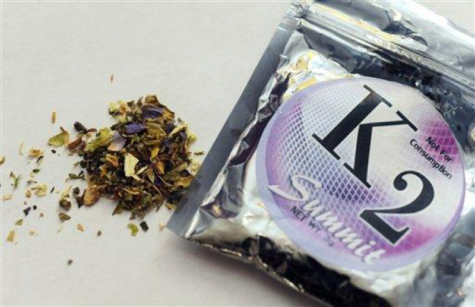3 things to know about Cannabis on “420”
April 20, 2018
Friday, April 20, 2018 marks a national “holiday” for cannabis enthusiasts, commonly known as 420. Although marijuana is a prevalent part of our society, there are lots of important pieces of information that some members of the general public may not be aware of. While April 20 will be surrounded with celebrations of marijuana, it is important to obey the all laws and ordinances related to marijuana.

1. Is it legal?
According to CNBC, “Attorney General Jeff Sessions this month ordered a review of marijuana policy to see how it may conflict with the President Donald Trump’s crime-fighting agenda, and Homeland Security Secretary John Kelly recently called marijuana ‘a potentially dangerous gateway drug that frequently leads to the use of harder drugs.”
As it stands, only eight states have legalized marijuana for recreational use, and Pennsylvania is not one of them. “On April 17, 2016, Gov. Tom Wolf signed into law SB 3, Pennsylvania’s compassionate medical cannabis legislation,” said the Marijuana Policy Project.
However, this only means patients with terminal and very serious illnesses including but not limited to AIDS/HIV and multiple sclerosis can receive medical marijuana, and it is illegal for anyone that does not have a prescription
2. What are the medical effects?
Marijuana is most notorious for the ‘high’ that it causes.
This effect is achieved from a chemical found in the plant known as THC, short for Tetrahydrocannabinol.
According to the National Institute of Drug Abuse, “THC is able to alter the functioning of the hippocampus…and orbitofrontal cortex, brain areas that enable a person to form new memories and shift his or her attentional focus,” continuing, “As a result, using marijuana causes impaired thinking and interferes with a person’s ability to learn and perform complicated tasks.”
Most users fail to think about the long term effect of their actions. Long term use of marijuana in adolescence can have major effects on the brain.
A study from the Hippocampus Journal “found that teenagers who smoked pot every day for three years had ‘abnormally shaped’ hippocampal regions when they reached their early 20s. Those individuals ‘performed around 18 percent worse in long-term memory tests,’ compared to other test subjects who had never smoked marijuana.”

3. How dangerous is ‘synthetic’ marijuana?
A new type of drug has emerged over the last couple years, known officially as ‘synthetic marijuana.’ It is a manufactured version of the cannabis plant that mixes hundreds of different chemicals to produce the same effect as organic cannabis.
In fact, of the cases that have been hospitalized, nine “have tested positive for brodifacoum, a lethal anticoagulant often used as a rodenticide, or rat poison,” according to the Illinois Department of Public Health.
There have been no deaths caused by the direct use of marijuana, however this is not the case with synthetic marijuana. According to CNN, “synthetic cannabinoids often called Spice, K2, or fake weed have been tied to 56 cases of severe bleeding, including two deaths, across Chicago and areas in central Illinois. All of the cases required hospitalization related to coughing up blood, blood in the urine, bloody nose, bleeding gums and other symptoms.”
There have been few studies on synthetic marijuana, and the National Institute of Drug Abuse warns that the it use is still more harmful that natural marijuana.
Despite the fact that some people choose to celebrate marijuana on Apr. 20, it is important to remember that under federal law the drug is illegal and the harmful effects can last a lifetime.


